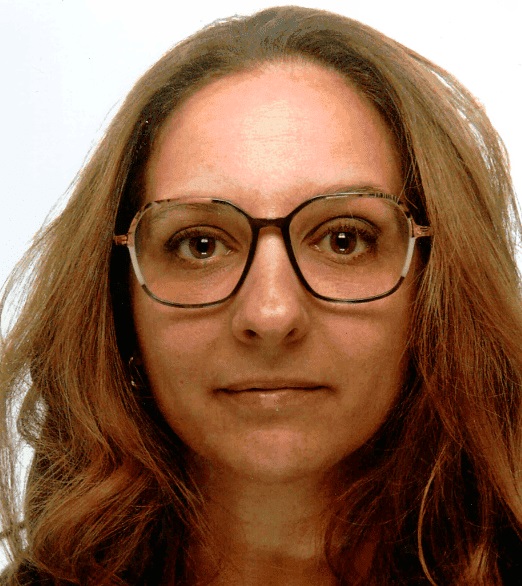ECER 2022 - Education in a Changing World: The impact of global realities on the prospects and experiences of educational research
Date : du 22-08-2022 au 10-09-2022
Appel à communications ouvert jusqu'au : 31-01-2022
Lieu : Yerevan et à distance
Modalité : en présentiel et/ou distanciel
Organisation : European Educational Research Association (EERA)
22 - 23 August 2022 Emerging Researchers' Conference - ERC 2022, Yerevan (in-person)
23 - 25 August 2022 European Conference on Educational Research - ECER 2022, Yerevan (in-person)
01 - 10 September 2022 ECER Plus (online)
Programme :
The background to the organisation and hosting of ECER 2022 in Yerevan is one that has been indelibly and fundamentally influenced by the experience of the Covid-19 pandemic. The initial rhetorical, political and social reactions to this profound global challenge paradoxically, although perhaps understandably, emphasised the necessity to engage in unprecedented actions in order to ensure continuity with the as it was world prior to January 2020. These actions have had a profound effect at all levels of society and have been global in scale. As we consider their impact, what has become increasingly clear is that the two centrifugal forces of interdependency and individuality remain at the heart of most social endeavours and continue to have a profound impact on education and educational research.
The drive towards greater integration and interdependency is one of the most significant social trends of recent decades. Arguably we have seen the emergence of a ‘global’ civil society, where a wide range of social structures and processes (security, healthcare, ecology, education etc.) are becoming increasingly integrated and connected across different transnational, national, regional and local contexts. The emergence of collective solutions for global questions and challenges, often driven by transnational bodies who seek to maximise their impact through the provision of at times prescriptive policy interventions, has resulted in greater drive towards homogenisation across many areas of society. In education this movement can been seen in, for example, the impact of large scale assessments, increased coordination of government policies across regions, the dominance of research discourses from specific cultural, linguistic and methodological discourses to name but a few.
Perhaps in reaction to this drive towards integration there has been a parallel, and increasingly important, assertion of the particular and a demand that researchers and practitioners in education be allowed to take into consideration local specifications. The demand that local and national academic and cultural particularities be given special consideration when discussing issues in education and educational research is emerging as an increasingly important theme. From this perspective, education fulfils a crucially important role, because all generations are represented in it and it provides a forum for intergenerational knowledge creation and sharing that has the potential to have a transgenerational impact.
The host country for ECER 2022, Armenia, is a fascinating exemplar of the way in which these parallel drives towards integration and fragmentation play out. As a country at the crossroads of Europe and Asia, it incorporates various cultural, research and policy traits. In terms of educational provision, recent decades have seen the Armenian educational system move from a Soviet model to one that consciously seeks to integrate itself into a broader ‘European’ structural and policy area. This transition is ongoing and continues to pose opportunities and challenges for educational researchers and practitioners. Arguably our recent experience of global dislocation brought about by the pandemic has resulted in educational researchers across Europe and beyond facing similar types of challenges. For this reason ECER 2022 in Yerevan seeks to explore how we as researchers are engaging with a changed and changing reality. How does EERA, an organisation committed to engaging in educational research for the benefit of society, carry out this mandate in such a world? What, for example, do we mean when we speak of society? Has it really been radically changed by our recent experiences or have we ‘returned to normal’? What do we now mean by ‘educational research’? How do we now ‘do’ this research? Has this changed and if so how and why? Does the drive to integrate and share beyond previously defined borders enhance our potential as researchers to improve educational provision? Have we lost the contextual richness of our work in the drive to develop global solutions or are we managing to successfully integrate the global with the local?
Keynote Speakers
URL : https://eera-ecer.de/.../
• résumés : https://eera-ecer.de/.../
Depuis l'édition 2014, les résumés longs des communications sont mis à disposition dans la bibliothèque numérique de l'EERA. Le moteur de recherche permet une interrogation par mot clé libre, par auteur, par année, par n° de communication et par réseaux.
L'EERA comprend 33 réseaux thématiques, auxquels s'ajoutent un groupe dédié aux jeunes chercheurs :
1. Professional Learning and Development
2. Vocational Education and Training (VETNET)
3. Curriculum Innovation
4. Inclusive Education
5. Children and Youth at Risk and Urban Education
6. Open Learning: Media, Environments and Cultures
7. Social Justice and Intercultural Education
8. Health and Wellbeing Education
9. Assessment, Evaluation, Testing and Measurement
10. Teacher Education Research
11. Educational Improvement and Quality Assurance
12. LISnet - Library and Information Science Network
13. Philosophy of Education
14. Communities, Families, and Schooling in Educational Research
15. Research on Partnerships in Education
16. ICT in Education and Training
17. Histories of Education
18. Research in Sport Pedagogy
19. Ethnography
20. Research in Innovative Intercultural Learning Environments
22. Research in Higher Education
23. Policy Studies and Politics of Education
24. Mathematics Education Research
25. Research on Children's Rights in Education
26. Educational Leadership
27. Didactics - Learning and Teaching
28. Sociologies of Education
29. Research on Arts Education
30. Environmental and Sustainability Education Research, ESER
31. LEd – Network on Language and Education
32. Organizational Education
33. Gender and Education
Emerging researchers' group
mot(s) clé(s) : recherche en éducation














